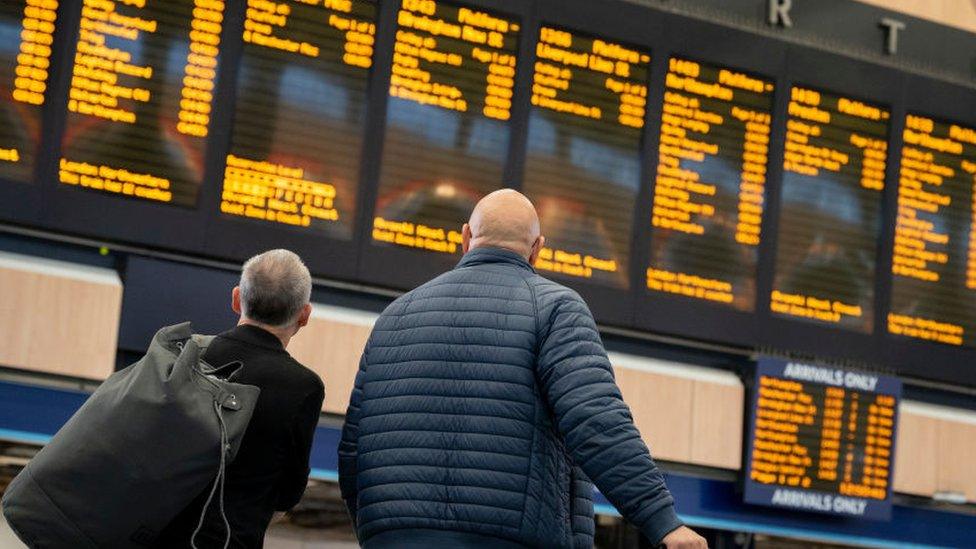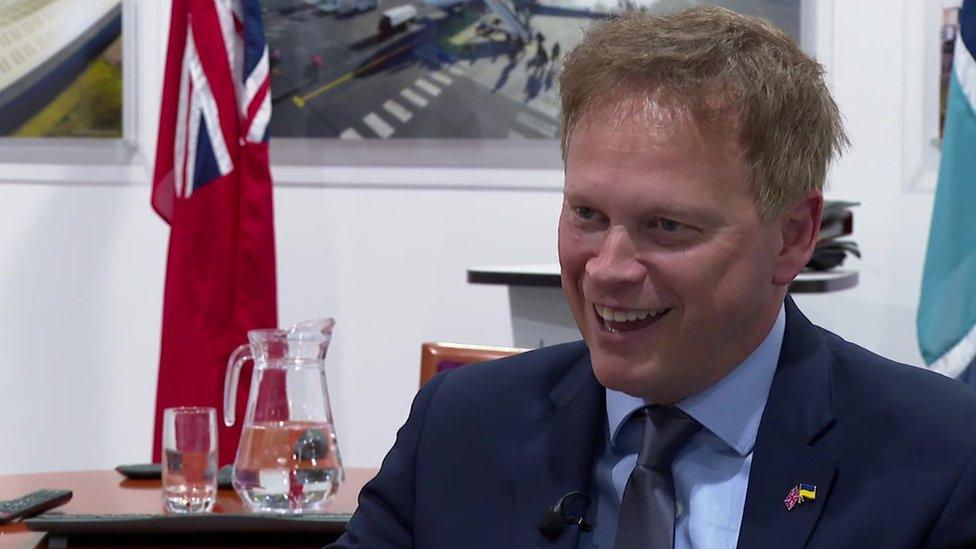Rail strikes: No rush to call for more action, says union
- Published
- comments

A rail workers' union has said it is "not in any rush" to call for further strikes in July, following last week's walkouts which caused significant disruption across the UK.
Eddie Dempsey, senior assistant general secretary at the RMT, said the union did not "take these steps lightly".
Mr Dempsey, who is also leading talks with Network Rail, said it had been an intense week of discussions.
The two sides are trying to reach an agreement to prevent further strikes.
Thousands of members of the RMT who work for Network Rail and 13 train companies walked out on Tuesday, Thursday and Saturday last week as part of a dispute over job cuts, pay and conditions.
Half of the rail network was closed on strike days, while the knock-on impact meant services were also disrupted on the following days.
The union has warned more strike action could follow.
However, when asked on the BBC's Today programme whether there could be further strikes in July, Mr Dempsey said: "We've told people we're not in any rush.
"I think we've made a pretty emphatic point with the strike action we put on. We don't take these steps lightly. We're in no rush to run into the boardroom and name further action."
The RMT and Network Rail are initially trying to reach an agreement on job security, before discussing pay and conditions.
Mr Dempsey said the discussions this week had been "fairly intense".
"We're progressing in terms of discussions. There are some fundamental issues of difficulty between us still, and that's why we're seeking feedback, but we haven't gotten onto the question of pay yet," Mr Dempsey said.
"That's going to be a really important issue, and whether or not there can be an offer that satisfies our people, we will have to wait and see."
Talks 'constructive'
It came as the lead negotiator for Network Rail, Tim Shoveller, said he was "cautiously optimistic" that an agreement would be reached with the RMT union to prevent further strikes.
Speaking to the Today programme, Mr Shoveller said talks since last week's walkouts had been "constructive".
On 20 June, the day before the first rail strike, Network Rail gave the RMT a letter inviting them to a formal consultation meeting on 1 July about introducing reforms to working practices which would involve job losses.
A spokesperson told the BBC this week that although the letter had not been withdrawn, all sides had agreed to temporarily set it aside to enable talks to continue, and it would only come into play if talks stalled.
Mr Shoveller confirmed to the BBC that the meeting originally planned for this morning to formally start that process would no longer take place.
He said there was "no need" for it, as the best way to find a conclusion was through negotiation. He added that "the letter remains in place, but at the moment that is not preventing us from having the conversations we need to have".
Mr Shoveller described this as a "pragmatic position" after "pragmatic conversations" with the RMT this week, and there was no need to start that formal consultation for the moment.
Related topics
- Published9 May 2024

- Published29 June 2022
